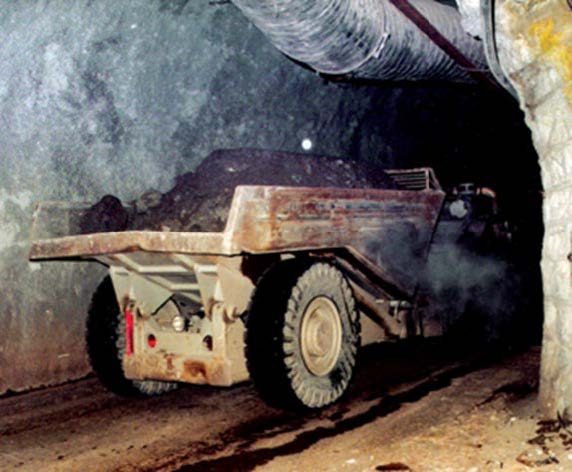HEALTH ALERT
Diesel Particulate Matter (DPM)
The exhaust from diesel engines contains a mixture of gases and very small particles that can create a health hazard when not properly controlled.
What is Diesel Particulate Matter (DPM)?
- DPM is a component of diesel exhaust that includessoot particles made up primarily of carbon, ash,metallic abrasion particles, sulfates, and silicates.
- Diesel soot particles consist of elemental carbon andorganic carbon compounds.
What are the health effects of DPM?
- Prolonged DPM exposure can increase the risk ofcardiovascular, cardiopulmonary, respiratory disease,and lung cancer.
- Short term exposure to high concentrations of dieselexhaust can cause headache, dizziness, and irritationof the eye, nose, and throat.

The hierarchy of controls is the most effective strategy for minimizing worker exposure to DPM. A combination of controls is often required.
Engineering controls:
- Installing cleaner burning engines.
- Performing routine preventive maintenance of diesel engines to minimize emissions.
- Using special fuels or fuel additives (e.g., biodiesel).
- Provide increased ventilation where diesel engines are operated.
- Providing equipment cabs with filtered air.
Administrative controls:
- Restricting the amount of diesel-powered equipment and total engine horsepower operating in a given area and ensure that the number of vehicles operating in an area does not exceed the capacity of the ventilation.
- Restricting unnecessary idling of engines.
- PPE and respirator use should be the “last line of defense” in the hierarchy of controls.

